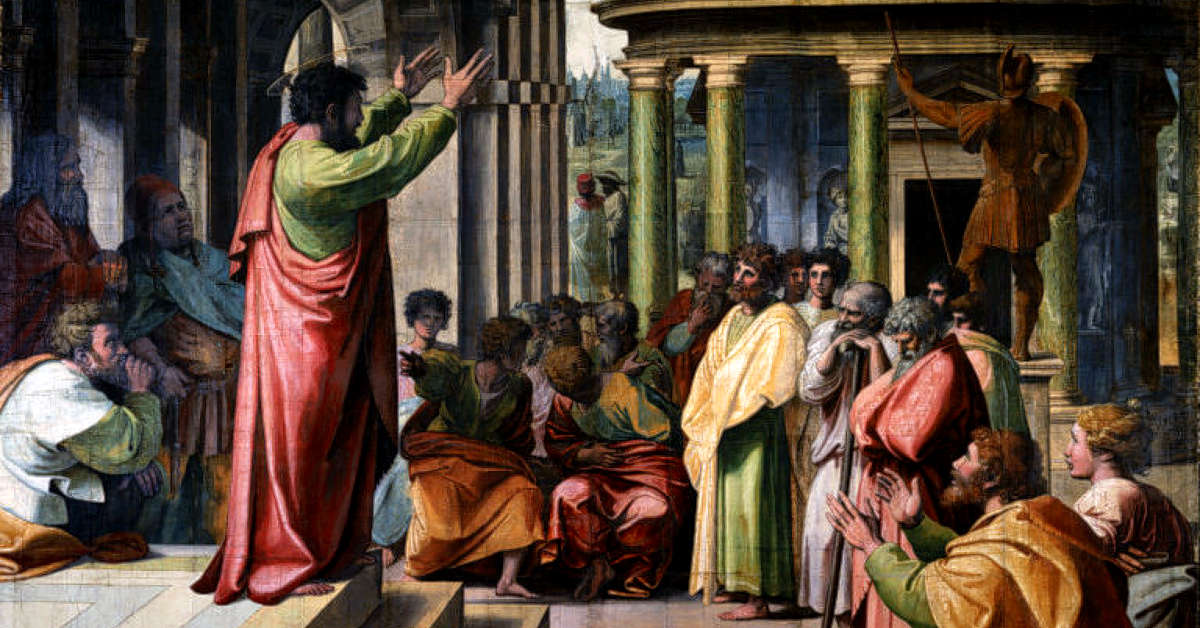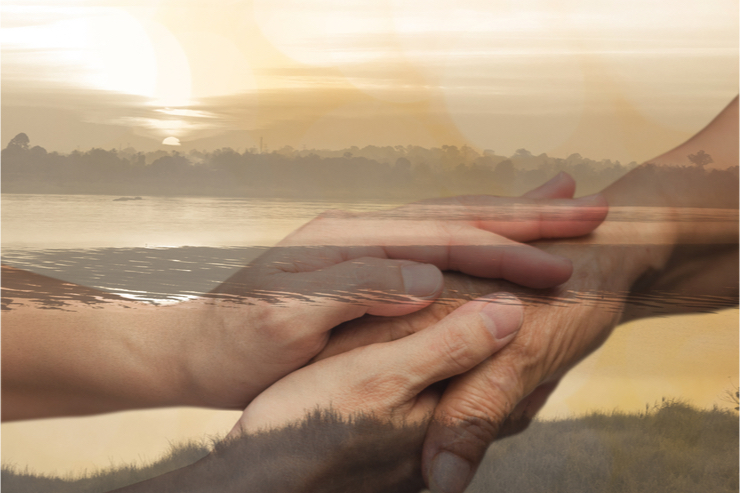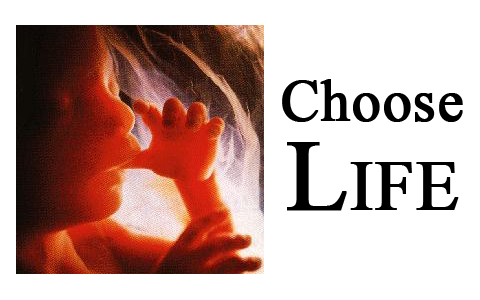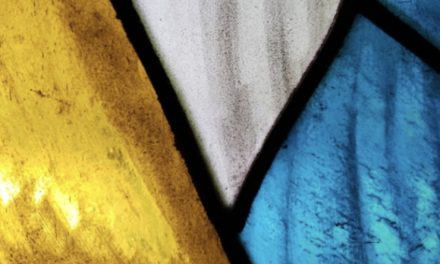The Most Poetic Line in Any Language
There is a verse in Scripture that speaks about who we are as human beings. It may not be overstating the point to suggest that it is the single best explanation of the meaning of human existence.
The verse is from a speech Paul was giving to the wise men of Athens. He was attempting to explain to them who God is. To accomplish this, Paul first used his own language, and then he quoted words directly from a Greek poet of antiquity named Aratus. This was someone Paul knew his listeners would be familiar with.
“‘In him we live and move and have our being’; as even some of your poets have said, ‘For we are indeed his offspring’” (Acts 17:28).
Think of it, we are God’s offspring, we are His very children. It is likely many of us have never given this fact much consideration. There seems to be a great deal of interest these days in individual ancestry, and what it is that our genealogy can tell us about our own family history. We are fascinated by our lineage, where we came from and what character traits our ancestors may have passed on to us. Many investigate this information, no doubt, to help provide themselves answers about who they are. But if we really want to take this analysis of our origin to its logical conclusion, or more accurately to its logical beginning, then we need to look no further than Paul’s use of the poetic line: “We are His (God’s) children.” This is our true ancestry.
But, as important as this line, originally from Greek poetry, “We are His children,” may be in helping us understand who we are, we may need to stop a moment and reflect more on the verse Paul uses about our complete dependence on God. The verse where he explains how we rely on God to “live, to move” and even to be.
This is one of those Bible verses our modern culture tends to shy away from. Our staunchly independent human nature, and our long-standing appreciation for the word ‘freedom,’ tends to make us revolt at the idea that we are completely dependent creatures. But the irony is, that in God’s plan, it is this very dependence on Him that provides us with our true human freedom. If we are indeed God’s offspring, created in His own image, and if it is in Him that we literally live, move and have our being, then it is also true that anything we pursue outside of God, or apart from His perfect plan for our life, will not only not increase our freedom, it will also lead to a sense of anxiety and confusion regarding what our life is all about. If it is in Him, that we live, move and have our being, then this means there is no real life for us outside of God.
Again, if we find ourselves struggling with this idea, it is always good to turn back to scripture, and most especially to Jesus’ own words, to see if we find confirmation of this idea directly from the Lord.
“I am the vine, you are the branches. He who abides in me, and I in him, he it is that bears much fruit, for apart from me you can do nothing.” (John 15:5)
The Lord seems quite clear here, we are part of Him. As a result, if we are looking for the ultimate fulfillment of our life in anything other than God, we will not find it. There may be times when we experience some measure of temporal and temporary joy. We may allow ourselves to be satisfied, for a time, with the things this world offers, and that it even suggests will bring us ultimate fulfillment. But if we are honest with ourselves, we will come to understand that what we most desire is only going to be found in God.
So, what does any of this have to do with our day-to-day life, or, for that matter, with our prayer life? Well, aside from helping all of us find real meaning and purpose in our lives, our understanding of this Biblical principle of our dependence and ancestry as God’s children, should help us to eliminate what is arguably one of the greatest psychological epidemics affecting modern society – anxiety.
Have any of us ever experienced anxiety? Has it ever awakened us in the middle of the night, left us in a cold sweat, or caused us to become fearful? Well, maybe one or two of us knows what I am talking about. Paul certainly did. That is why, in his letter to the Philippians, he simply told us never to entertain anxiety. And he also gave us the formula for avoiding it.
“Have no anxiety about anything, but in everything by prayer and supplication with thanksgiving let your requests be made known to God.” (Philippians 4:6)
Of course, this is all well and good for Paul, as he had been provided remarkable graces to be able to understand what it was the Lord wanted Him to communicate, and he also endured great suffering as a result. But perhaps we need something more than just Paul’s encouragement to not allow ourselves to become anxious.
There was another very holy man, and prayerful monk, who also offered advice on this topic of anxiety. Or rather, the monk claimed the following words were spoken to him by our Lord. This instruction from our Lord can be found in a book entitled In Sinu Jesu, which translates In Jesus’ Breast. It is a profound book by an Irish monk, and what the Lord shares with him in his hours of Eucharistic Adoration is very powerful. The following words from our Lord clearly reiterate what Christ said about our need to rely on Him in every circumstance. They also seem to affirm the advice we read in Paul’s letter to the Philippians.
Christ explains to the monk that souls do not offend Him when they experience anxiety. But He (Christ) wants them to learn how to avoid it. Christ cautions against self-reliance, and then He explains that, for souls who pray and genuinely desire to seek His will, the actual experience of anxiety is only His voice calling them to follow Him with more confidence
“Tell me that you trust in My merciful love by letting go of the things that burden and oppress you. I am the Lord of all things in heaven and on earth, and to Me nothing is impossible. Give me the first place in your heart and in your life, and I will provide for you in every circumstance. I will not allow you or those with whom you share your life to want for anything. My providence is wholly at the disposal of My merciful love. Trust then in my merciful love and you will see the wonders that I will accomplish for you.”
Christ then goes on to instruct this monk on what can keep a person from experiencing anxiety in the first place. It is to not waste our time in futile worry but place all our reliance on Him.
“So much time and energy are wasted in futile worrying and in endless discussions about what is needed and how to go about getting it. Simply present your needs to Me with a trusting heart and I will show you that I am a lavish provider for those who let Me take charge of their needs.”
These appear to be simple directions that anyone could follow, but the truth is that maintaining this confidence in the Lord requires us to constantly live in His Grace. The best and most effective way for us to acquire this Grace is through constant prayer. If we are to live with confidence, constantly beating back the epidemic of anxiety, then we must also constantly seek the Lord’s gift of Grace. For we cannot acquire this Grace of confidence on our own through wishing, hoping or positive thinking. The Lord’s guidance on this issue is very clear.
“Apart from me you can do nothing.” (John 15:5b)
Copyright © Mark Danis
Image credit: “St. Paul Preaching in Athens” (detail) by Raphael, Public domain, via Wikimedia Commons
Both one-time and monthly donations are welcome. Just $10 a month will help cover the cost of operating Integrated Catholic Life for one day! Please help us bring enriching and inspiring Catholic content to readers around the world by giving today. Thank you!
Please share this post on Facebook and other social media you choose below:














